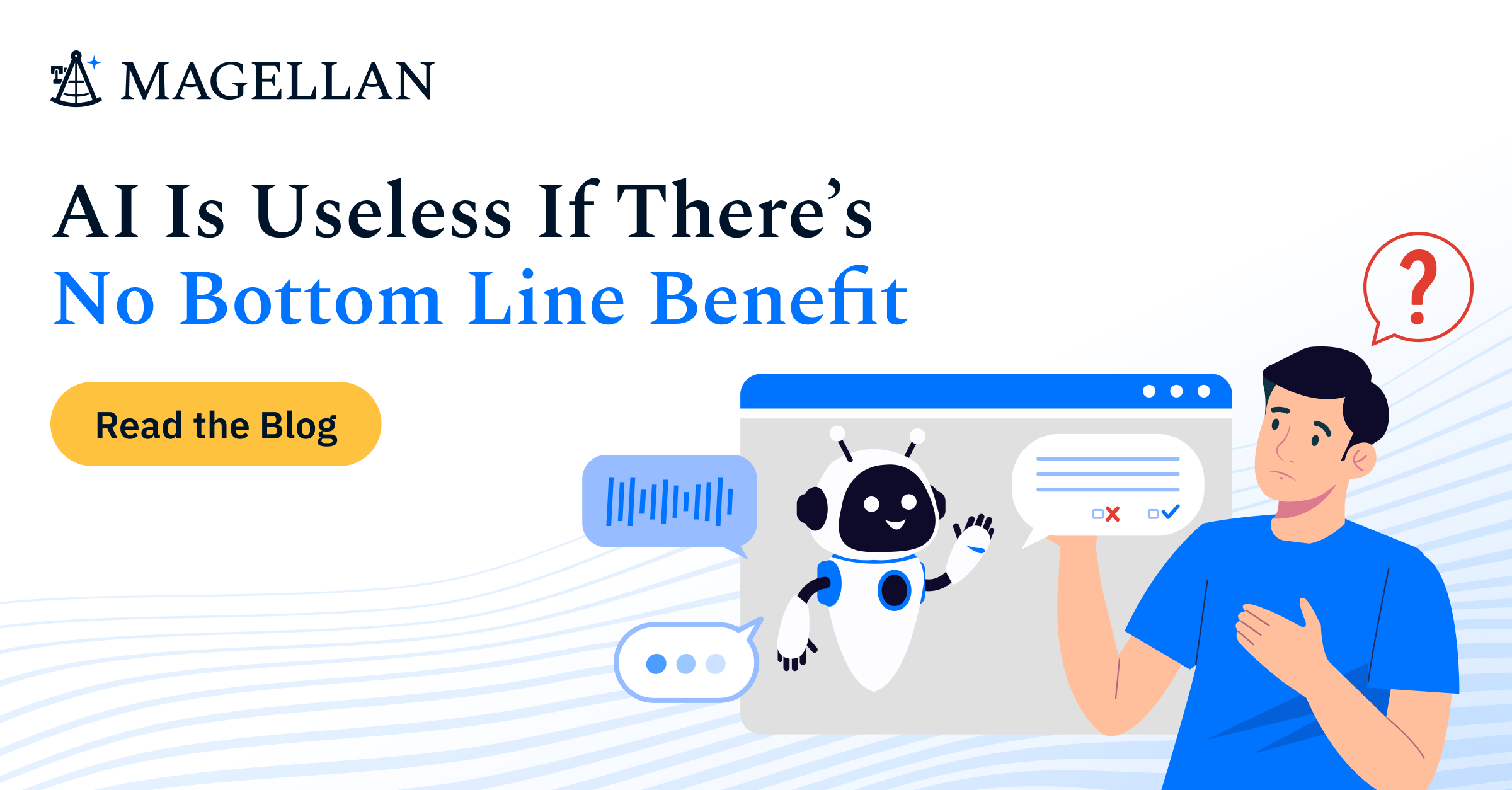Despite a sharp rise in AI adoption across insurance, measurable results remain rare.
According to McKinsey, just 5% of companies who have adopted AI have transformed even a single business area in a way that positively impacts the bottom line.
Genpact reports a similar disconnect: 69% of insurers say they’ve deployed AI, but only 36% of customers notice any improvement in service.
This isn’t an integration or execution issue.
It’s a purpose issue.
AI projects fail when they aren’t tied to clear operational goals, or focus on specific problems.
To those unsuccessful adopters, AI has been a solution in search of a problem that yielded no benefit.
The Appearance of Progress Without Substance
Many AI platforms offer summaries, dashboards, and generic performance reports. So what?
Here’s where they fall short: what they don’t do is identify the things that matter. To insurance agents, they want to know:
- Which of my customers are at risk?
- Which of my employees need coaching?
- Which processes aren’t being followed?
- Which calls are going to give me compliance issues?
Without the benefit of AI, managers are left reviewing random call samples, relying on untimely and unspecific feedback that likely isn’t actionable, and hoping that performance improves.
It’s quality assurance by chance.
Four Known Failure Points in Agency Operations
- Missed Churn Risks - If you're not tracking customer sentiment, unresolved issues, or follow-up lapses across calls, you’re not identifying churn risk until it’s too late.
- Inconsistent Coaching Standards - Without objective, behavior-level insight, feedback varies by manager and moment. That leads to inconsistent expectations, unclear improvement targets, and minimal accountability.
- Manual Review with No Prioritization - Call review still hinges on random sampling, which means issues are often missed. Without a signal on which interactions need attention, managers waste time reviewing successful calls while more serious issues go unchecked.
- Time/ Capacity - insurance agency operations is a catch-all term for the all the important stuff that needs to get done, but rarely does it all get because it’s not the best return on your time and not all of these activities or processes are guaranteed to drive enterprise value because of their haphazard application.
How Magellan Addresses These Gaps
Magellan is a new insurance-specific AI tool designed to act as your operations manager-in-a-box, tracking performance, identifying issues, surfacing what matters to you, and showing you where best to focus your limited time.
Here’s what Magellan does differently:
Risk-Driven Call Review
Magellan automatically flags calls based on predefined risk criteria: tone shifts, unresolved issues, missing follow-ups, and compliance concerns. Managers review a filtered queue of interactions that require attention, eliminating the guesswork from QA and helping them respond to issues, not search for them like a needle in a haystack.
Tagging and Sentiment Analysis
Calls are transcribed and tagged based on key topics discussed and customer sentiment. Patterns such as billing issues, claims interactions, or competitor mentions are identified across calls, giving managers a high-resolution view into what’s happening inside the agency, not just individual performance, but systemic problems.
For example:
- 47% of last month’s escalated calls involved billing issues
- 30% of new business quotes mentioned a competitor
- One team’s customer satisfaction rate dropped by 12% last quarter
These are operational signals, not surface-level summaries.
Follow-Up and Process Adherence
Magellan tracks whether required steps (e.g., a follow-up scheduled, documentation added to the AMS) actually occurred. If a call ends without following proper service standards, it gets flagged. This moves you from documentation to verification - knowing not just that calls happened, but that they were handled to the customers’ satisfaction.
No Manual Review Backlog
Unlike tools that generate call summaries for managers to read through manually, Magellan sorts and prioritizes interactions by severity. Managers don’t have to sift through recordings or search the AMS. Instead, they respond only to alerts that meet specific thresholds, saving time while increasing intervention accuracy.
Conclusion
If your AI investment isn’t helping your bottom line, it’s just a solution in search of a problem.
To independent agents, that can mean identifying customer churn risk before it materializes, coaching more effectively, and driving enterprise value.
Magellan is built by insurance professionals with decades of experience, so it’s structured for real agency workflows - tracking follow-ups, measuring sentiment, and flagging deviations from process. It doesn’t replace human insight. It directs and amplifies it.
Schedule a consultation to see how Magellan helps you stop guessing and start acting on what’s real.

Tired of BoRs and ACORD Cancellations Catching You Off Guard?
Stay ahead with Magellan℠’s real-time tracking and insights.



